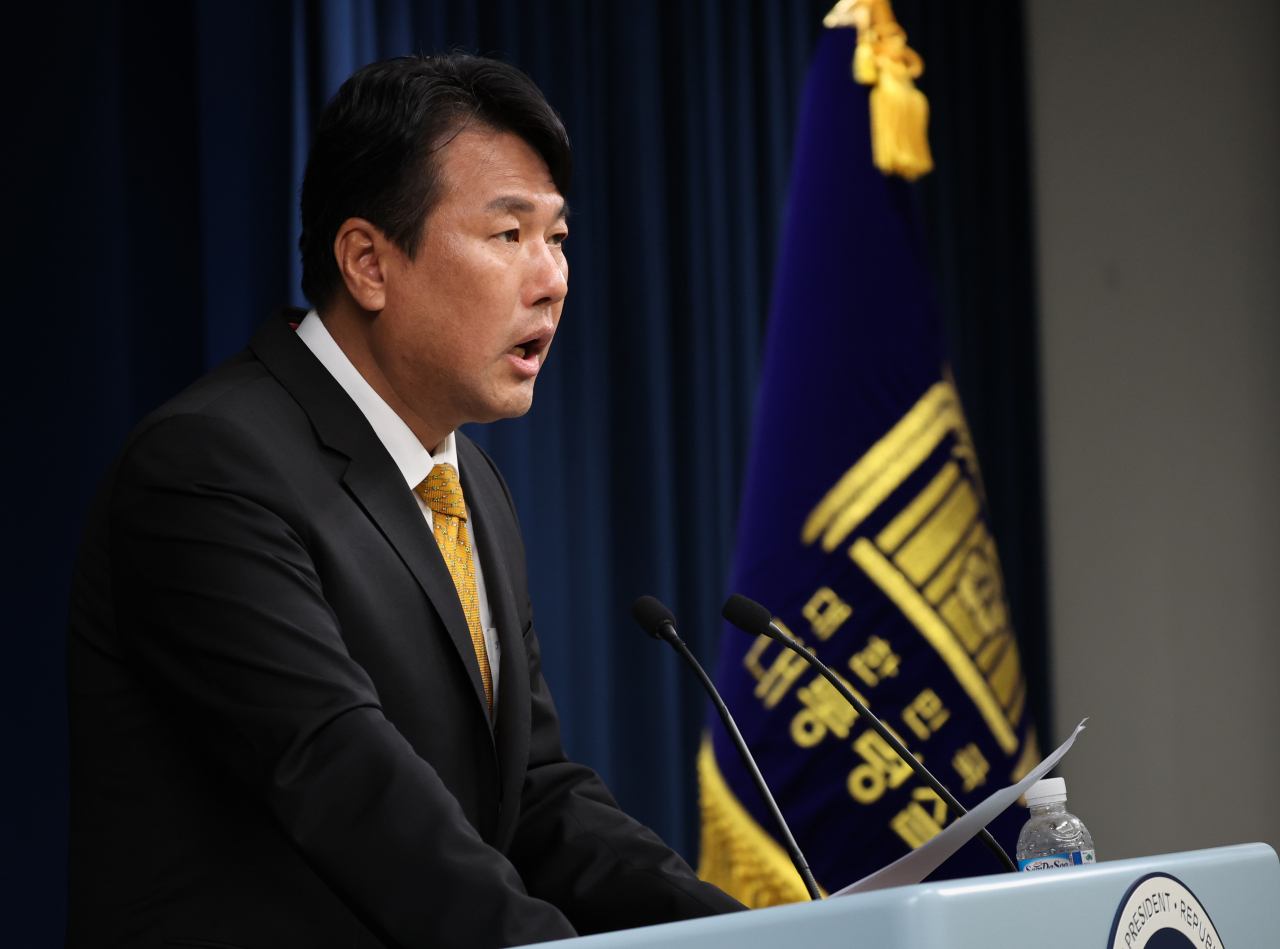Yoon, Biden to discuss extended deterrence, economic security at summit
By Shin Ji-hyePublished : April 20, 2023 - 15:06

President Yoon Suk Yeol will make a five-day state visit to the United States from April 24 at the invitation of US President Joe Biden. During the visit, the two leaders are expected to strengthen their joint defense posture, discuss details of extended deterrence and further enhance economic and security cooperation.
President Yoon's trip marks the first visit of a Korean president to the United States in 12 years, following the visit of former President Lee Myung-bak in 2011.
The White House announced Wednesday that this will be the second state visit of the Biden-Harris administration, and the first state visit by a leader from the Indo-Pacific region. In a press release, the White House emphasized that the visit will underscore the ironclad alliance between the US and South Korea, one which has grown far beyond the Korean Peninsula, and is now a force for good both in the Indo-Pacific and around the world.
During a bilateral summit on April 26, the two leaders will discuss “a shared vision of a strong and deeply integrated US-South Korea alliance” that maintains peace, stability and prosperity in the Indo-Pacific and beyond, according to the statement.
According to Kim Tae-hyo, the first deputy director of Korea's National Security Office, who spoke to reporters on Thursday, the upcoming summit is expected to provide an opportunity to "further strengthen the joint defense posture of South Korea and the US" and "elaborate on the extended deterrence operations between the two countries."
Extended deterrence refers to the US using its nuclear capabilities and missile defense systems to provide deterrence if South Korea were to come under nuclear attack.
As public anxiety continues to grow amid escalating North Korean nuclear threats, the South Korean government has urged the US to develop a more comprehensive and practical plan for implementing their joint efforts for extended deterrence. The success of the joint statement will largely depend on the inclusion of specific and concrete measures aimed at curbing the expansion of North Korea's nuclear capabilities.
Kim also highlighted that the two countries are expected to further enhance their economic security cooperation. He stated that they will work toward strengthening strategic partnerships to establish stable supply chains, expanding partnerships in crucial emerging technologies such as semiconductors, batteries and quantum technology, as well as deepening cooperation in cyber information and space-related endeavors.
There is a growing focus on whether the summit will address uncertainties for Korean companies caused by US protectionist policies, such as the CHIPS and Science Act and the Inflation Reduction Act.
As part of Yoon’s state visit to the US, major Korean business leaders are set to accompany him. The heads of five Korean conglomerates -- Samsung, SK, Hyundai Motor, LG and Lotte -- as well as the heads of all six major Korean economic organizations, will be part of the delegation accompanying the president.
The Korea Economic Research Institute recently released a report stating that it is unreasonable for Korea as a US ally to be excluded from benefits such as US tax credits related to the chip industry. The report also pointed out that the Inflation Reduction Act imposes challenging conditions for allies to fulfill in a short amount of time, including requirements related to final assembly, core minerals for batteries and battery parts for electric vehicle subsidy eligibility.
President Yoon is scheduled to deliver a speech to both the US Senate and House of Representatives on April 27.
According to Kim Tae-hyo, during his speech Yoon will reflect on the 70-year history of the alliance between South Korea and the US, which has been built on the common values of liberal democracy, the rule of law and human rights. He will present a blueprint for the future of the alliance that the two countries will pursue together.
Following his speech, Yoon will attend a state luncheon hosted by Vice President Kamala Harris and Secretary of State Antony Blinken. After the luncheon, he will receive a briefing from US military leaders on the current state of affairs. This briefing is expected to cover a range of issues related to the two countries’ alliance, including joint defense posture, extended deterrence and the regional security environment in the Indo-Pacific region.
After the briefing, Yoon will travel to Boston, where he is scheduled to have a conversation with scholars in the field of digital biotechnologies at the Massachusetts Institute of Technology on April 28. Later in the day, he will attend a Korea-US cluster roundtable discussion nearby.
Yoon is scheduled to deliver a policy speech at Harvard University's Kennedy School on April 28. In his speech, he is expected to reflect on the expansion of economic and political freedom led by the US over the past 200 years, and share his thoughts on the ambivalence of freedom in the digital era. Yoon is expected to return home on April 29.



















![[Today’s K-pop] Treasure to publish magazine for debut anniversary](http://res.heraldm.com/phpwas/restmb_idxmake.php?idx=642&simg=/content/image/2024/07/26/20240726050551_0.jpg&u=)